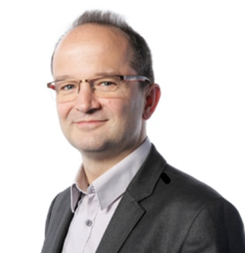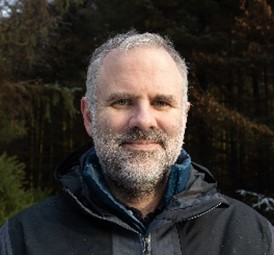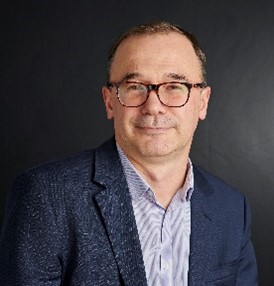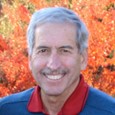10th Delft Summer School
Carbon Capture and Storage with focus on Depleted Fields
1 - 5 July 2024, Department of Geoscience & Engineering, Delft, The Netherlands
This school covers the basics of carbon capture, utilization and storage in subsurface formations with special focus on depleted hydrocarbon fields. The underlying physical phenomena and trapping mechanisms will be discussed from pore-level to large-scale applications.
Topics Covered
- CCS in aquifers and depleted oil and gas fields
- CO2 Trapping mechanisms
- Thermodynamics of CO2
- Cold CO2 injection
- Numerical modeling of CO2 storage at various scales
- CO2 hydrates and their impact on injectivity
- Rock, Well, and Reservoir integrity
- Surveillance and monitoring
Instructors
Sylvain Thibeau

Sylvain Thibeau is an expert in CO2 geological storage and works for TotalEnergies. He has been involved in CO2 storage since 2000, focusing on evaluation, modeling, and monitoring technologies for projects like Sleipner and Lacq. Currently, Sylvain provides guidance to TotalEnergies’ CCS studies, including R&D, development studies, and large-scale evaluations. He also leads the OGCI Storage Working Group, which is responsible for developing the CO2 Storage Catalogue, the first global, open database of published CO2 storage assessments. Additionally, he is a member of the SPE CO2 Storage Resource Committee. Sylvain has authored over 40 publications on CO2 geological storage. He has also co-edited two books on the results of CO2Store R&D projects and the Lacq-Rousse demonstration pilot.
Owain Tucker
Owain Tucker is the Manager for CCS capability, assurance, and project support, as well as the Principal Technical Expert in Carbon Storage at Shell. Owain represents Shell in global taskforces and initiatives related to CCS. He is a member of the UK Subsurface Taskforce, co-chairs the SPE group developing the Storage Resource Maturation System, and participates in the OGCI Storage Working Group. He holds positions on the executive committee of the IEA GHG R&D program, the board of the UKCCSRC, the UK CCS ISO mirror committee, and the ZEP taskforce technology. Additionally, he is an Honorary Associate Professor at Heriot-Watt University, where he lectures on CO2 storage. In his previous roles, Owain worked as a reservoir engineer, economist, and eBusiness consultant at Shell, as well as a strategy consultant at McKinsey & Company. He holds a degree in Physics and Geophysics from the University of the Witwatersrand in Johannesburg, South Africa, and a D.Phil in Experimental Solid State Physics from the University of Oxford.

Raul Valdez
Raul Valdez is a CCUS front end development manager for Petroleum Development Oman (PDO), Muscat, Oman since 2024, the previous 8 years at Kinder Morgan CO2 Houston, Texas as Yates development manager, and 23 years before that at Shell/Altura/Oxy as the Principal Technical Expert (PTE) in gas injection and sequestration. His career began in 1991 working on the largest CO2 injection field in the world, the Wasson Denver Unit. Denver City, TX. Thereafter he spent several years working various, large CO2 projects for Altura/Oxy. Rejoining Shell, he then worked on a global studies team on various problems around the globe including assignments in Rijswijk, the Netherlands and Muscat, Oman. He has lectured internally gas injection courses and surveillance. He has numerous patents pending in gas injection related topics and has authored numerous papers. He received his BS in nuclear engineering (fusion focus) and minor in mechanical engineering from the Massachusetts Institute of Technology.
Denis Voskov
Denis Voskov is an Associate Professor at the Department of Geoscience and Engineering, TU Delft, and Adjunct Professor at the Department of Energy Science & Engineering, Stanford University. He is leading a research group on the development of advanced simulation capability for energy production and storage processes related to deep subsurface. Before joining TU Delft, Denis was a Senior Researcher at the Department of Energy Recourses Engineering, Stanford University, Chief Technology Officer of Rock Flow Dynamics Company (developer of t.Navigator), Chief Engineer at YUKOS EP company, and a leading specialist at the Institute for Problems in Mechanics, Russian Academy of Sciences.

Mark D. Zoback

Mark D. Zoback is the Benjamin M. Page Professor of Geophysics, Emeritus at Stanford University. Dr. Zoback conducts research on in situ stress, fault mechanics, and reservoir geomechanics with an emphasis on shale gas, tight gas and tight oil production as well as CO2 sequestration. He is the author of two textbooks and the author/co-author of approximately 400 technical papers. His most recent book, Unconventional Reservoir Geomechanics, was written with Arjun Kohli, and published in 2019 by Cambridge University Press. His online course, Reservoir Geomechanics, has been completed by over 12,000 people around the world. Dr. Zoback has received a number of awards and honors including election to the U.S. National Academy of Engineering in 2011.
Registration and fee
- €2500 attendees from industry
- €1000 academic staff and Post doc researchers
- €600 PhD students and Post doc researchers
To register, please send an email to delftsummerschool-citg@tudelft.nl
We can admit limited number of participants. People who register earlier will have priority. Registration deadline is 15 May 2024.
Information regarding location / travel to the course
The course will be taught in the Faculty of Civil Engineering & Geosciences of the TU Delft. The address of the faculty is: Stevinweg 1, Delft. The building is roughly 20 minutes walking distance from the town centre. Once you have exited the town centre by crossing the Sebastiaans bridge on the south side, the faculty is reached by walking along this road for another 10 minutes. A red cycling path leads directly to the university; this should be clearly visible. The front of the faculty building has a big sign which reads "Civil Engineering & Geoscience".
 |
The Delft Summer School on Carbon Capture Utilization and Storage (CCUS) is organized by the Department of Geoscience and Engineering. For questions and registration please contact: Organising committee: |
| Registration deadline is 15 May 2024. |


This Delft Summer School is sponsored by Shell and EBN.
